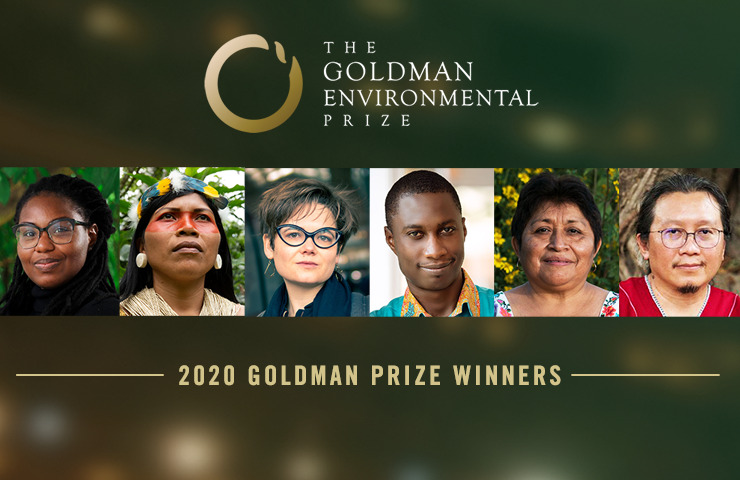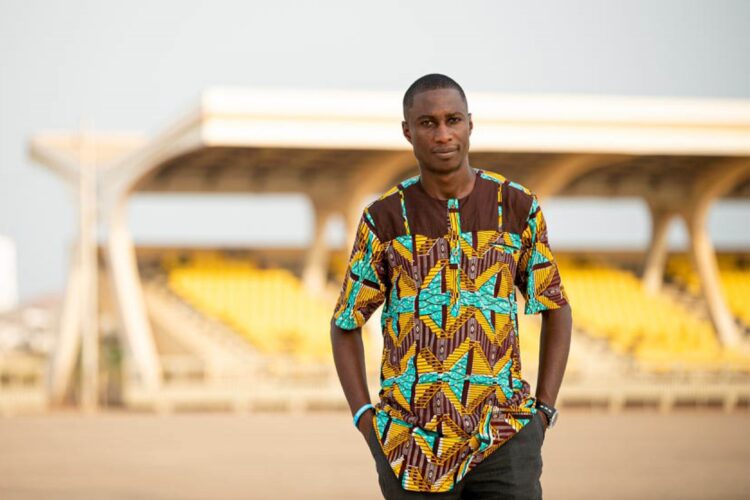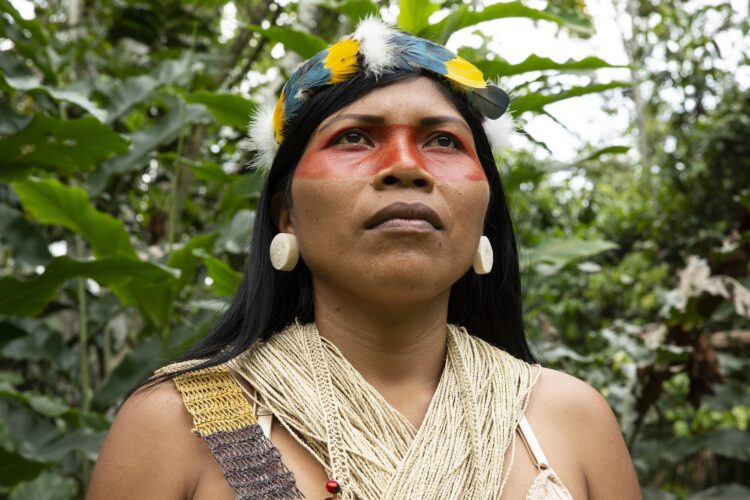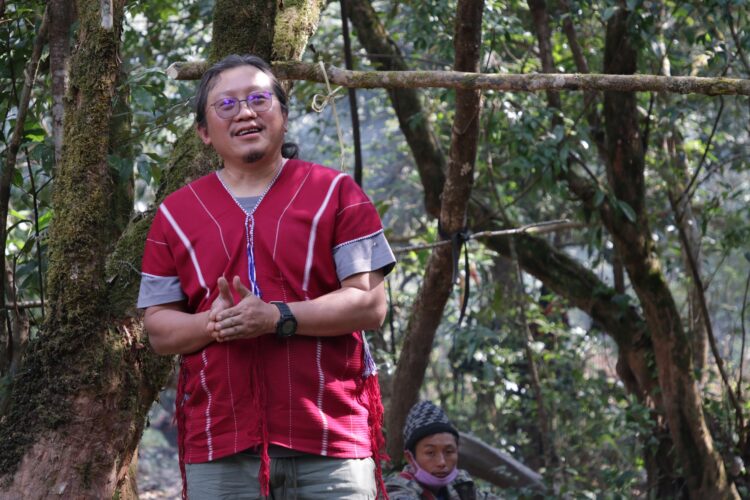
Congratulations to the 2020 Goldman Environmental Prize winners!
The Goldman Environmental Prize is the world’s foremost award honoring grassroots environmental activists and their extraordinary efforts to protect and enhance the natural world.
This year, we are especially thrilled to see three Global Greengrants Fund grantees on the list: Chibeze Ezekiel, Nemonte Nenquimo, and Paul Sein Twa.

Chibeze is the leader of a grassroots campaign seeking to halt the proposed construction of a 700-MW Chinese-backed coal power plant in Aboano, a coastal fishing community. The plant would be the first of its kind in Ghana, and the project would pose serious health and environmental risks for 52,000 local people.
Since 2014, Chibeze and his organizations, G-ROC and Strategic Youth Network for Development, have received seven grants from Global Greengrants Fund to support efforts to combat the coal plant construction. Funding helped the organizations report evidence of the project’s negative environmental impact, monitor the permitting process and due diligence procedures, launch a public information campaign, and educate local communities on the importance of renewable energy. These efforts paid off when Ghana’s environmental minister announced in 2016 that the 700-MW coal plant would not be built, and that all new power projects in the country would only be renewable energy-based.

Nemonte, a Waorani activist, helped her community pursue legal action to protect their home in the Amazon rainforest from oil extraction. Their efforts resulted in a landmark ruling, in which the Ecuadorian court indefinitely blocked the entry of oil companies onto ancestral Amazonian land for oil exploration activities. The verdict effectively protects 500,000 acres of precious rainforest from being auctioned off for oil activity, and sets a critical and historic precedent for Free, Prior, and Informed Consent for other Indigenous groups across Ecuador.
Her organization, Consejo de Coordinacion de la Nacionalidad Waorani Pastaza Ecuador, has received two grants from Global Greengrants Fund in collaboration with Rainforest Action Network supporting legal efforts to protect Waorani territory.

Paul and his Indigenous Karen community established a 1.35 million acre peace park in the majorly biodiverse, culturally significant Salween River basin. In 2001, he co-founded the Karen Environmental and Social Action Network, an organization that Global Greengrants Fund has supported throughout the years.
Paul engaged local leaders, the forestry department, and civil society in a unique, collaborative, and community-based approach to conservation, replacing colonial forestry principles with traditional practices. In December 2018, the Karen People officially declared the creation of the 1.35 million Salween Peace Park, managed by local Karen communities, which includes 27 community forests, three wildlife sanctuaries, and many endangered species. The park’s borders were specifically designed to include proposed dam sites – including the including the $2.6 billion, 1,360-megawatt Hatgyi Dam – which would threaten the heart of Karen territory.
We would like to thank the 2020 prize winners for their inspirational work to protect the environment and the rights of the people who call it home. Learn more about Chibeze, Nemonte, Paul, and all of the prizewinners here.
Photo credit: Goldman Environmental Prize
